[ROUNDUP: The FRESH Agilent Workshop on Aquaculture Safety and Resilience]
The Future of Seafood: Sustainable and Resilient Aquaculture
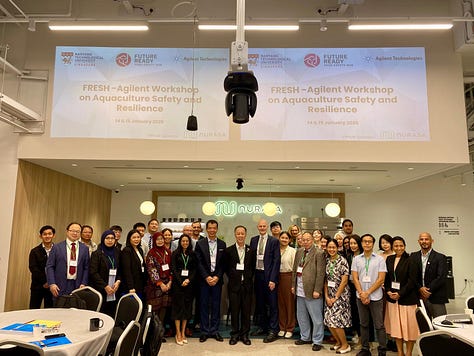
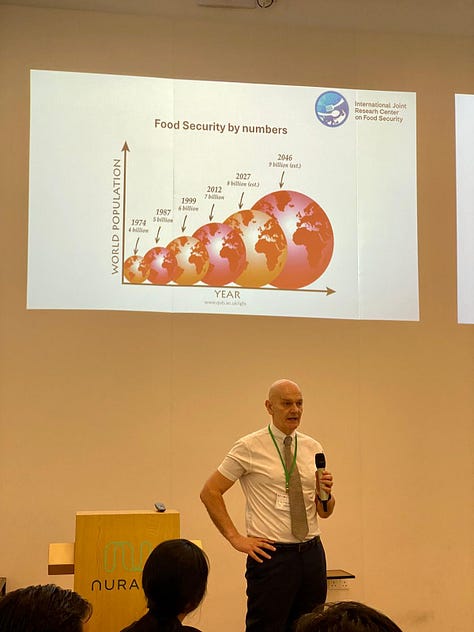
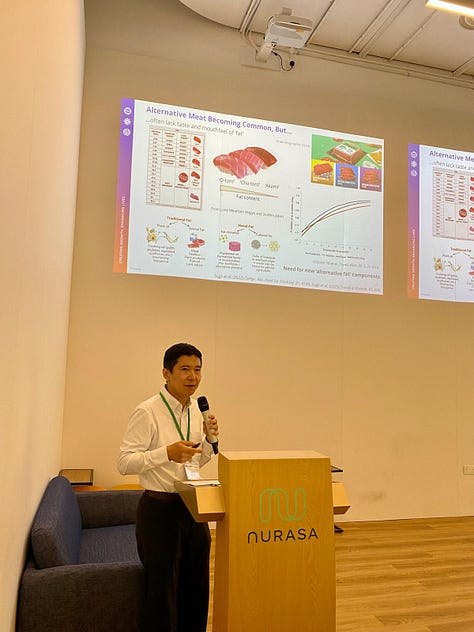
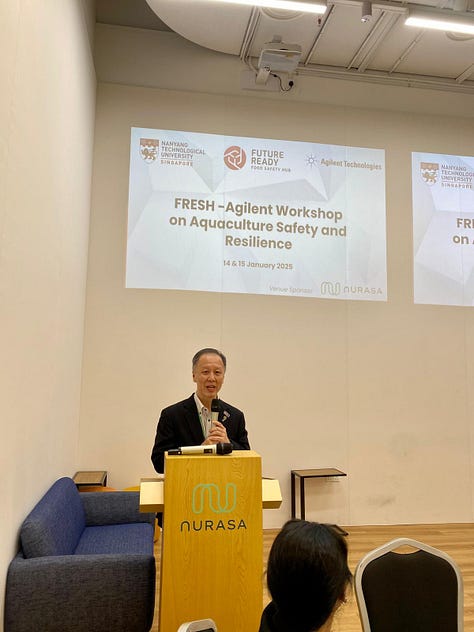
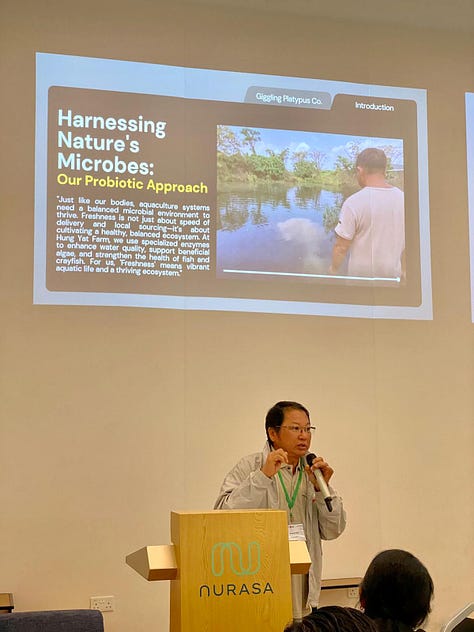
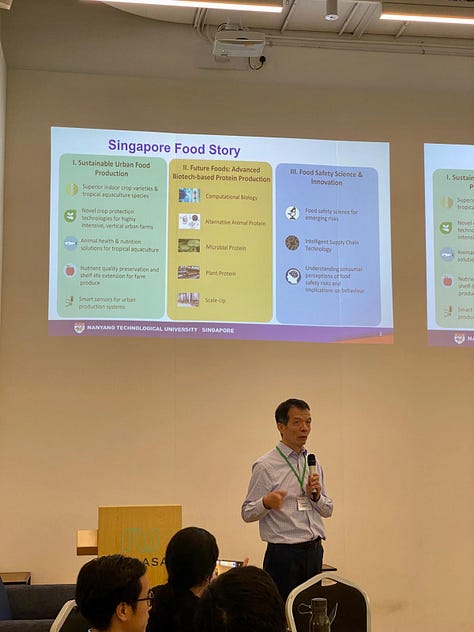
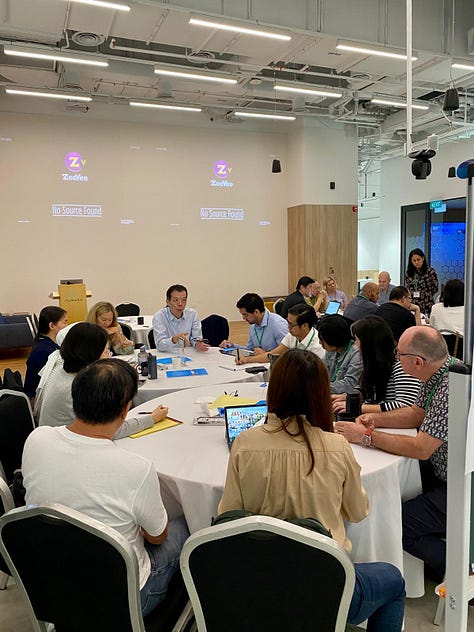
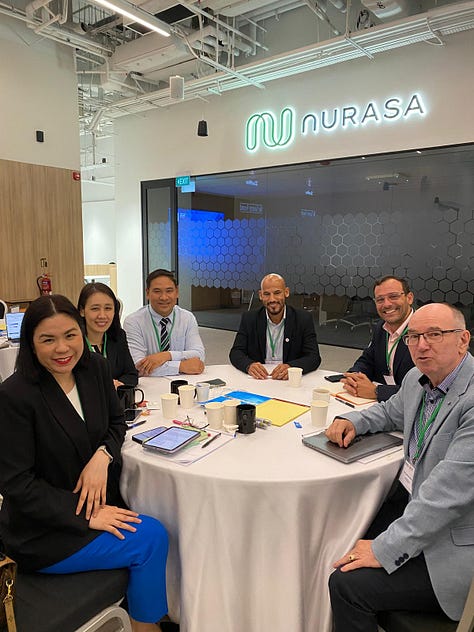
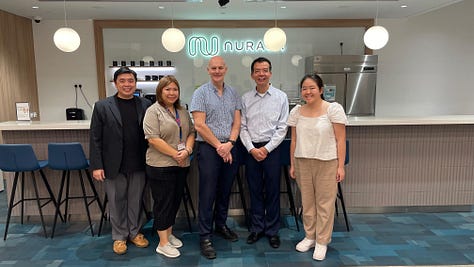
What if the future of seafood could be both sustainable and resilient? At the FRESH-Agilent Workshop on Aquaculture Safety and Resilience (14 Jan- 15 Jan), we explored just that.
Held at Nurasa in Singapore, this transformative event brought together leading experts in aquaculture, food safety and aquaculture industry from Singapore and across the world to discuss the future of aquaculture with a focus on safety, resilience, and sustainability.
A Vision for Sustainable Aquaculture
The workshop began with an inspiring opening speech by Professor Kah-Leong Lim, NTU Associate Vice President (Biomedical & Life Sciences). He emphasized the importance of enhancing traditional aquaculture through technological innovations while embracing novel approaches such as cell-based seafood and urban food solutions. His speech set the tone for a day of exploration and collaboration, highlighting the need for a balanced approach to address global food security challenges.
Key Highlights from the Workshop
Complementing Traditional Aquaculture with Cell-Based Innovations
One of the standout moments of the workshop was the discussion on how cell-based seafood could complement traditional aquaculture. Dr. Shigeki Sugii from SIFBI, A*STAR, introduced groundbreaking research on cell-based healthy fats derived from fish species. This innovation not only retains the taste and texture of conventional seafood but also offers a sustainable alternative to overfishing. Participants explored the potential of such technologies to transform the aquaculture industry while reducing its environmental footprint.Nature-Based Solutions for Sustainable Practices
Mr. Wong Chin Ming from Hung Yat Farm shared inspiring insights into nature-based solutions for aquaculture. He demonstrated how food waste could be converted into enzymes to improve fishpond water quality, resulting in chemical-free fish and red claw crayfish. His presentation showcased how integrating natural processes into aquaculture can enhance traditional practices while promoting sustainability.Addressing Key Challenges in Aquaculture
Professor Chris Elliott from Thammasat University, Thailand, led a thought-provoking discussion on the barriers to mainstreaming cell-based seafood and overcoming challenges in traditional aquaculture. Breakout sessions allowed participants to delve deeper into topics such as consumer acceptance, production standards, and strategies to overcome resistance to cell-based foods. These discussions underscored the importance of addressing both technological and societal challenges to drive innovation in the industry.The Power of Collaboration
As the organizer, FRESH was proud to share our vision for sustainable urban food production and biotech-based protein solutions. Professor William Chen, Director of FRESH, highlighted our ongoing research into new techniques for food safety risk assessment and nutritional benefits, which are critical to addressing food security challenges in Singapore and beyond. The workshop reinforced the importance of collaboration among researchers, industry leaders, and policymakers to create a more sustainable and resilient food system.
A Collective Effort Towards a Sustainable Future
We extend our heartfelt gratitude to all the speakers, participants, and partners, including Agilent Technologies and Nurasa, for their invaluable contributions to the FRESH-Agilent Workshop on Aquaculture Safety and Resilience. Your insights, expertise, and collaborative spirit made the event a resounding success and a significant step toward a sustainable future for aquaculture.
Moving forward, we are committed to pushing the boundaries of innovation and collaboration to create safe, resilient, and sustainable food systems.

